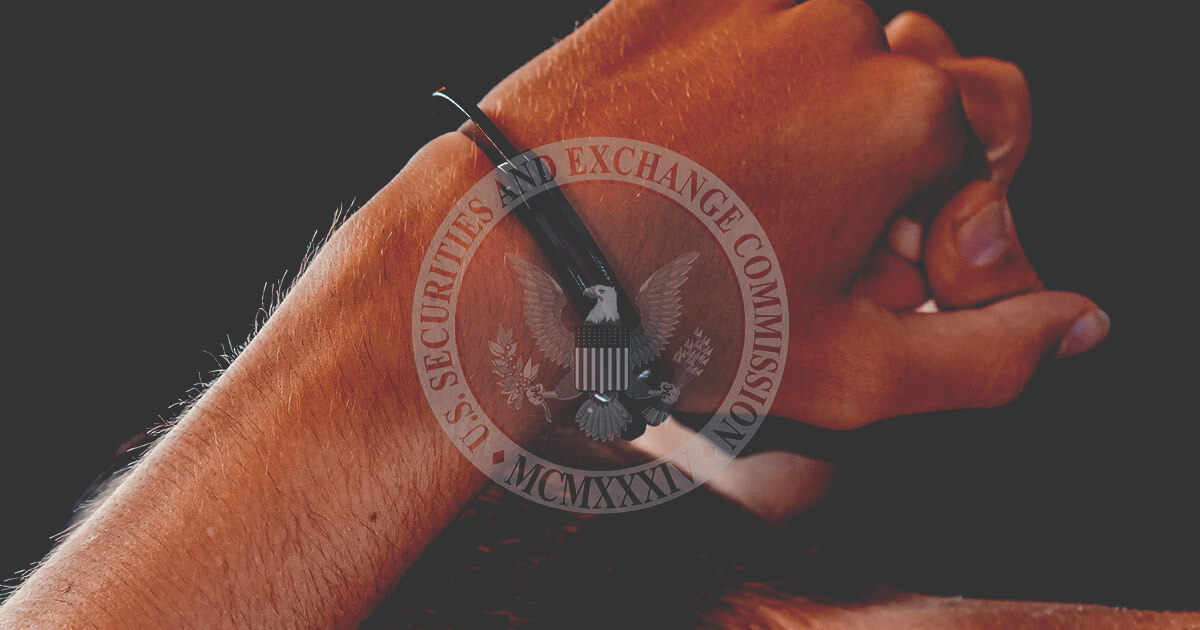The U.S Securities and Exchange Commission (SEC) takes action against alleged crypto fraud perpetrated by Profit Connect Wealth Services Inc.
Through an emergency action filing, the U.S securities regulator obtained a temporary restraining order and froze the company’s assets in a bid to stop Profit Connect from operating.
The SEC’s reputation has taken a hit following its lawsuit against Ripple. XRP holders argue that the regulatory body has acted contrary to its primary mandate to protect investors.
However, in this latest filing, the SEC demonstrates it continues to protect investors by holding bad actors to account.
Profit Connect guaranteed massive crypto gains
Since May 2018, 86-year-old Joy Kovar and her son, 54-year-old Brent Kovar, were said to have raised over $12 million from around 277 retail investors in an elaborate scheme involving the use of advanced AI technology.
The Kovars allegedly told victims that their money would be invested in securities trading and crypto tokens based on the recommendations of an “artificial intelligence supercomputer.”
This supercomputer was said to consistently generate huge returns, which enabled Profit Connect to guarantee investors fixed interest returns of between 20% and 30% a year, with compounding interest each month.
Further, the SEC alleges that the defendants did not use the money obtained to trade securities or buy crypto. Instead, they claim the defendants misused funds in several ways, including transferring to Joy Kovar’s personal bank account, paying promoters, and setting up a Ponzi-like affiliate system to bring more people on board.
Michele Wein Layne, the SEC’s Los Angeles Regional Office Director, said investors should be cautious of people who offer guaranteed returns with no risk.
“As we allege, the defendants targeted investors who were looking for safe products for their retirements and their children’s educations, offering a money back guarantee on top of the phenomenal results they promised to achieve using a purported ‘super computer.”
Be on guard against Ransomware
Data from Chainalysis shows that crypto crime is falling. Researchers found criminal activity accounted for just 0.34% of all crypto activity in 2020. During the previous year, this figure stood at 2.1%.
Since 2017, scams have made up the biggest type of illicit activity. While 2020 is no different, Chainalysis noted a significant rise in ransomware activity while scams fell.
“However, the big story for cryptocurrency-based crime in 2020 is ransomware. That may sound counterintuitive, as ransomware accounted for just 7% of all funds received by criminal addresses at just under $350 million worth of cryptocurrency. But that figure represents a 311% increase over 2019.”
Whether a good or bad thing, ransomware falls outside of the remit of the SEC, who are tasked with handling securities fraud.
As such, adding to Layne’s advice on the promise of guaranteed returns, protecting yourself should also include being careful about clicking links from unreputable sources.
Get an edge on the cryptoasset market
Access more crypto insights and context in every article as a paid member of CryptoSlate Edge.
On-chain analysis
Price snapshots
More context
Join now for $19/month Explore all benefits
Like what you see? Subscribe for updates.
Credit: Source link























